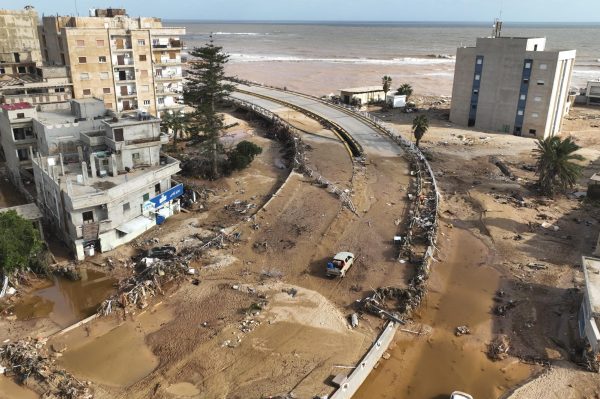In an unprecedented turn of events, Libya is currently grappling with a severe flooding crisis that has left communities struggling to recover. Torrential rains have inundated the nation, leading to widespread devastation, displacement, and disruptions in essential services. Since mid-September, Libya has experienced an extraordinary deluge, with some regions witnessing rainfall levels not seen in decades. These events have resulted in severe flooding across the nation; rivers have swelled beyond capacity, streets have transformed into waterways, and homes have been submerged, leaving thousands in dire states.
Libyan communities are continuing to face the impact of the flooding. Families are forced to evacuate their homes, seeking refuge in temporary shelters. Schools and hospitals are inundated, impeding essential services. Moreover, businesses have been disrupted, and agricultural lands have been rendered unusable, leading to economic hardships for many. In response to this crisis, Libyan authorities have rallied resources to provide immediate relief and support to affected communities. Emergency response teams have been mobilized to evacuate stranded individuals and deliver much-needed supplies. In addition, shelters have been established to accommodate those displaced by the floods.
Despite these concerted efforts, relief operations have been hindered by the sheer scale of the disaster. Limited access to some areas due to washed-out roads and damaged infrastructure has posed a significant challenge to the distribution of aid. Additionally, the ongoing political instability in Libya has strained the capacity of local authorities to respond effectively. The flood crisis in Libya has underscored the need for comprehensive environmental planning. Climate change, deforestation, and urbanization have all played a role in exacerbating the impact of the floods. Addressing these underlying issues is essential for building resilience in the face of future natural disasters.
Amidst the adversity, stories of community resilience have emerged. Neighbors are banding together to support one another, providing shelter, food, and emotional comfort to those in need. This spirit of solidarity serves as a beacon of hope amid adversity. As Libya navigates through this challenging period, focusing on immediate relief efforts and long-term solutions is crucial to the well-being of the country. Strengthening infrastructure, implementing effective urban planning, and prioritizing climate resilience are all vital steps in safeguarding communities against future disasters.
Ultimately, the flood crisis in Libya serves as a stark reminder of the need for preparedness and resilience in the face of natural disasters. The unity and determination exhibited by communities in the wake of this crisis demonstrate the unwavering spirit of the Libyan people. With concerted efforts and international support, Libya will hopefully emerge stronger and more resilient from this crisis than ever before.







